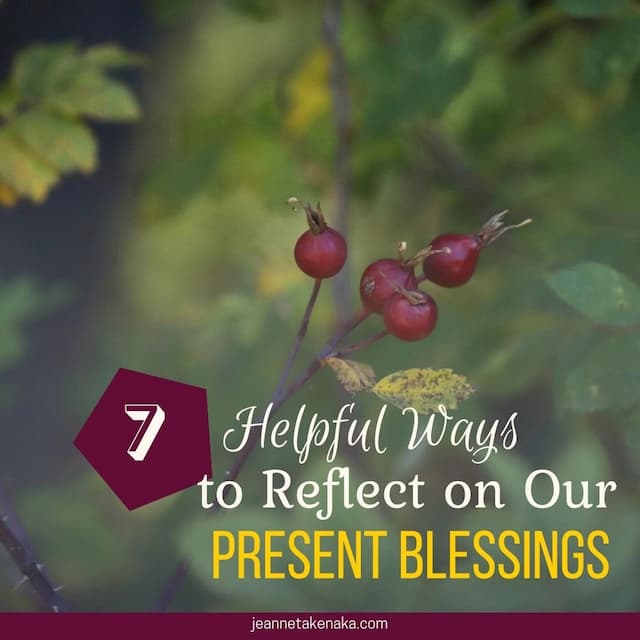10 How To’s for Calming Conflict with Those We Love - Jeanne Takenaka
Contents
I don’t know about you, but I sometimes still struggle when it comes to calming conflict. But conflict accompanies relationships.
Hubs and I hadn’t been married very long before we realized conflict is a natural part of relationships. And yes, I learned that the hard way. I’d seen my parents fight when I was growing up. And, they’d managed to work through disagreements and even thrive as they navigated their differences.

Though I anticipated some disagreements after we said, “I do,” I didn’t expect we’d fight over the best way to hang pictures on the wall. This was one of the first fights I remember. I insisted my way was best. Hubs insisted his was. In the process of deciding where pictures in our first home should hang, we ended up frustrated with each other.
Looking back, I realize the way I pushed my ideas felt disrespectful to him. Understanding his “respect language” has been an ongoing lesson. I sometimes say and do things that feel disrespectful to him. I may not be wrong in the point I want to convey, but I go about it in a hurtful way.

We each need to discover and understand what speaks love or respect to our spouses. I mean this in a healthy way, not that a woman should subject herself to an abusive husband in the name of “respect.” See the resources I’ve shared below if you have questions about the differences I’m trying to depict here.
***Note: I’m not a licensed counselor. I’m sharing from a layperson’s perspective.

Important things to consider for calming conflict
Being human means we will face conflict with other humans in our lives. Someone once said, “If two people always agree, one of them is unnecessary.”
10 How To’s for Calming Conflict with Those We Love—Being human means we will face conflict with other humans in our lives. Conflict is a part of being in relationship #calmingconflict #tellhisstory #relationships Click To Tweet
Sometimes the most heated fights come with the people we love the most . . . both because we (ideally) feel safe to be real with them and because, well, we love them. Often, the people we most love hold the greatest capacity to hurt us deeply. For this reason, it’s wise to know some do’s and don’t’s when it comes to calming conflict.

The Don’ts of Calming Conflict:
- Give in to the other person simply to avoid fighting. If this is a habit you have, take time to pray and determine the WHY behind this pattern. When we understand the why behind an action/habit, we can make healthy changes in how we process conflict.
- Make conflict personal by accusing the other person or criticizing their character.
- Avoid conflict by changing the subject, running away, or pretending a disagreement didn’t happen. Trying to sidestep disagreements only leads to deeper hurt and resentment in both hearts. We must be willing to face conflict head on wearing a helmet of grace. Meaning, we’re willing to offer grace in the middle of our differences.

Healthy Ways to Navigate Conflict:
- Pray. As soon as we realize we’re facing a fight, asking God to guide our emotions and our words can help us to not lose control of ourselves if things become heated.
- For couples, understanding how you two do conflict helps. Hubs and I tend to discuss things, and sometimes, voices raise a bit. On occasion, we need to take a break and come back to finish our discussion later. Usually our conflicts stay relatively calm. Some couples find it helpful to let the voices raise, hash out the issues, and then move forward. The key is to watch words in the midst of the “intense moments of fellowship.” Learning how you and your spouse effectively work through the issues is important for a lasting relationship.
- Knowing our spouse’s (or our child’s or our friends’) love language can inform how we handle conflict . . . don’t stomp on their hearts in the process of working through the issue.

Ways to Engage:
- Set boundaries on what is/is not acceptable during a fight. Hubs and I agreed early on sarcasm had no place in our marriage and especially not in conflict situations. We work to not accuse the other person or throw word daggers.
- Try to see the issue from the other person’s perspective. Sometimes, this is tricky when I’m dealing with a heated issue with one of our sons. But seeking to understand their side in a matter makes a difference in how I respond. Asking clarifying questions often opens the door to understanding.
- Listen. Even if the other person’s words or tone sound disrespectful, if we listen without interrupting, this speaks love or affirmation. It can also give us insight into the root of the conflict.
- Share our thoughts using “I” statements. “I” statements convey our perspective. “You” statements often sound accusing. Being aware of our tone can inform how we receive from and respond to the other person.

Final thoughts:
When we find ourselves in a fight with someone, let’s ask God to help us see them through His eyes and love them with His love. Though we may feel hurt in the moment, remembering we care for this person can influence our words and actions. Choosing affirming words— seeking-to-understand words—can diffuse conflict more quickly than rising to the anger the other person conveys.
10 How To’s for Calming Conflict with Those We Love—Choosing affirming words—seeking-to-understand words—can diffuse conflict more quickly than rising to the anger the other person conveys #calmingconflict #tellhisstory… Click To Tweet
I’m not encouraging anyone to deny their emotions or valid points. Sometimes, we must decide if it’s more important to be right or to be right with Jesus. When we choose humility (but not being a doormat!) instead of reacting in pride or with a need to be right, we show love to the other person.

And about hanging pictures? My husband has a knack for knowing the best places on the wall for them. And he’s way better at hanging them up straight, so I’ve learned to trust his judgment on this.
What about you? Do you have a tip to add to this list for calming conflict? What is one lesson you’ve learned when it comes to calming conflict?
I didn’t cover this in the post, but for women who are in abusive situations, here are a couple of resources:
What constitutes abuse? Click here for relationship expert Leslie Vernick’s clear-cut guidance on what constitutes physical, verbal, emotional, sexual, financial, and spiritual abuse. And you can find help at The National Domestic Violence Hotline here
Come share your story at the Tell His Story linkup. Connect and be encouraged by like-minded friends! #tellhisstory #linkup Click To Tweet
Most weeks, I link up with Grace and Truth, Anita Ojeda, Instaencouragements, and sometimes Let’s Have Coffee. Come join and read more encouraging posts!
Each week we gather here as storytellers, word weavers, and encouragers to make His name known. Our story is God’s story and this small corner of the blogging world, where we come together each Tuesday, needs you. This is a place where poetry, snapshots, prayers, and stories find a safe spot to nod in agreement that what we have to say matters. I am glad you are here and would love to have you join the #TellHisStory community. Add your own encouraging post through the link below. Spread some love by visiting your neighbor and leaving your own encouragement. Click here to read more about the #TellHisStory community and find a button to add to your site.
Each week we gather here as storytellers, word weavers, and encouragers to make His name known. Our story is God’s story and this small corner of the blogging world, where we come together each Tuesday, needs you. This is a place where poetry, snapshots, prayers, and stories find a safe spot to nod in agreement that what we have to say matters. I am glad you are here and would love to have you join the #TellHisStory community. Add your own encouraging post through the link below. Spread some love by visiting your neighbor and leaving your own encouragement. Click here to read more about the #TellHisStory community and find a button to add to your site.
HTML













